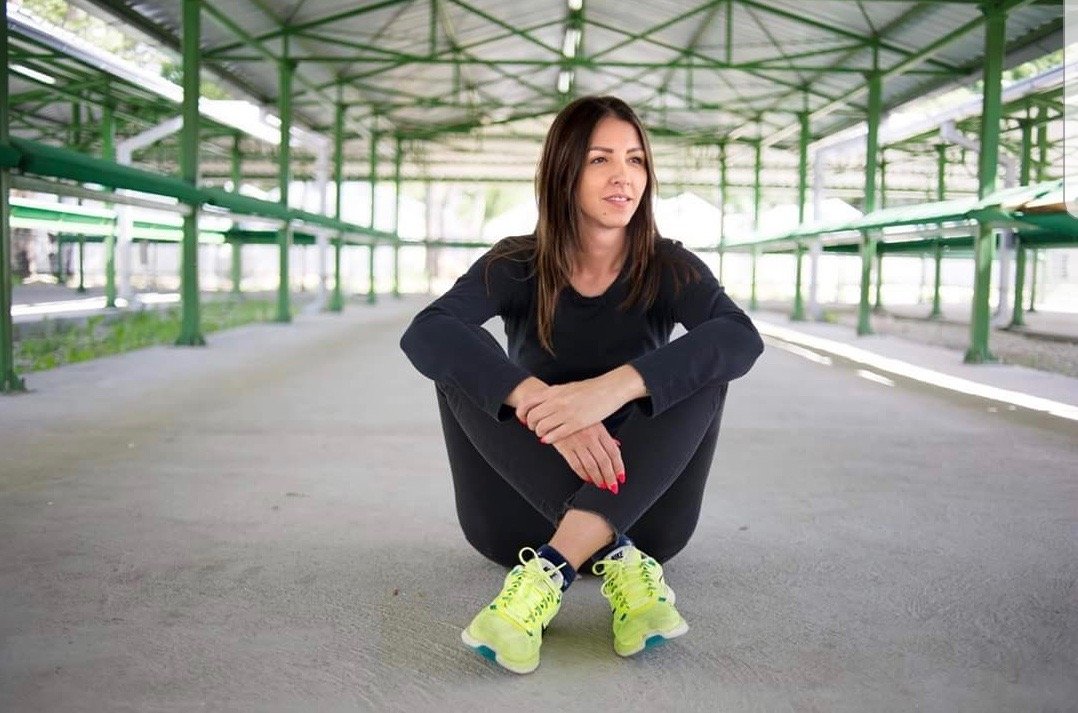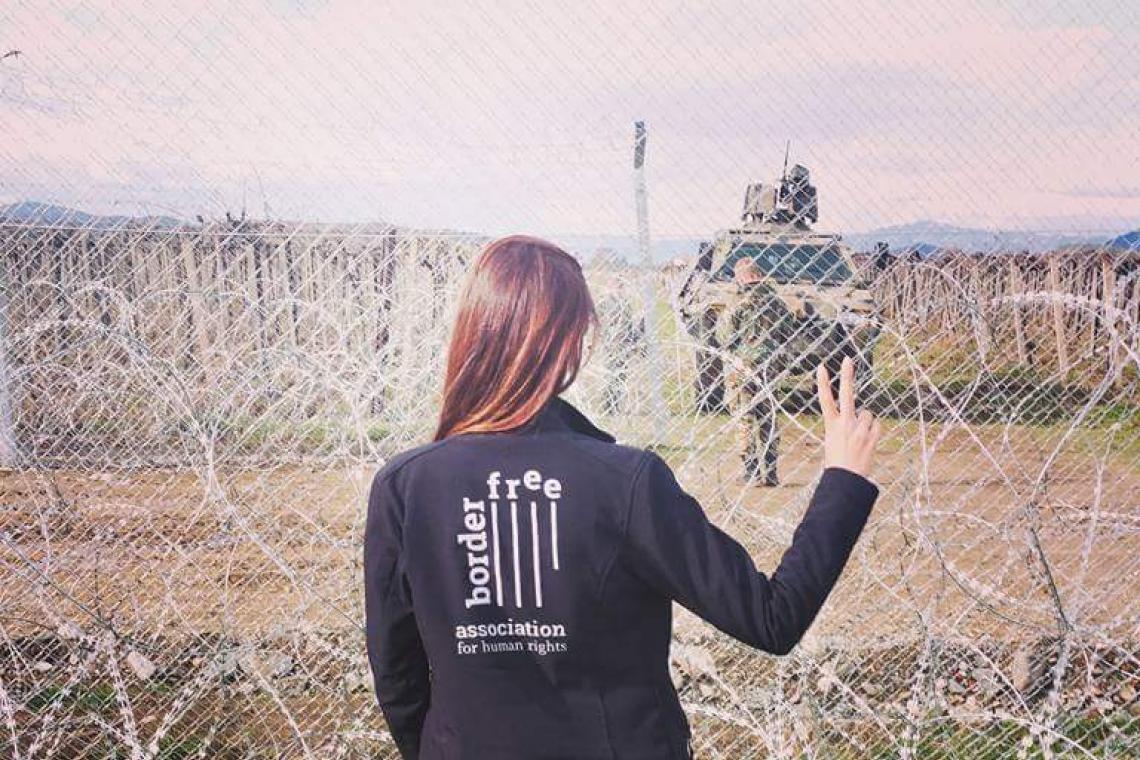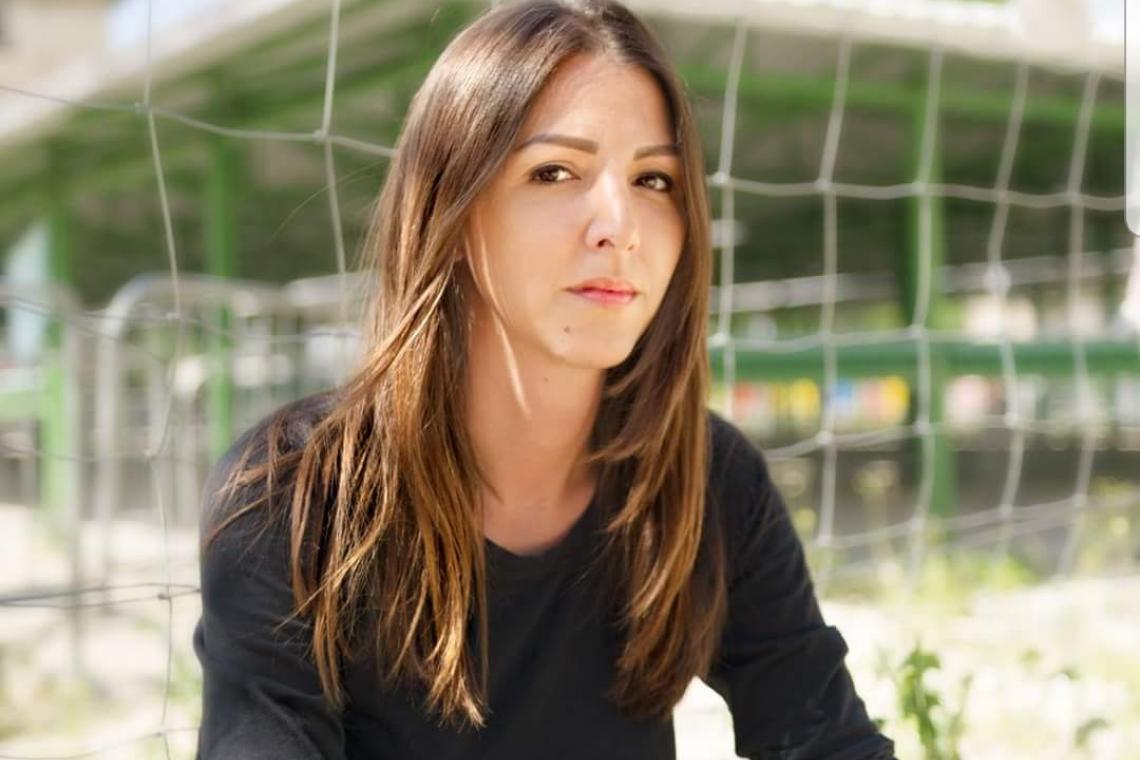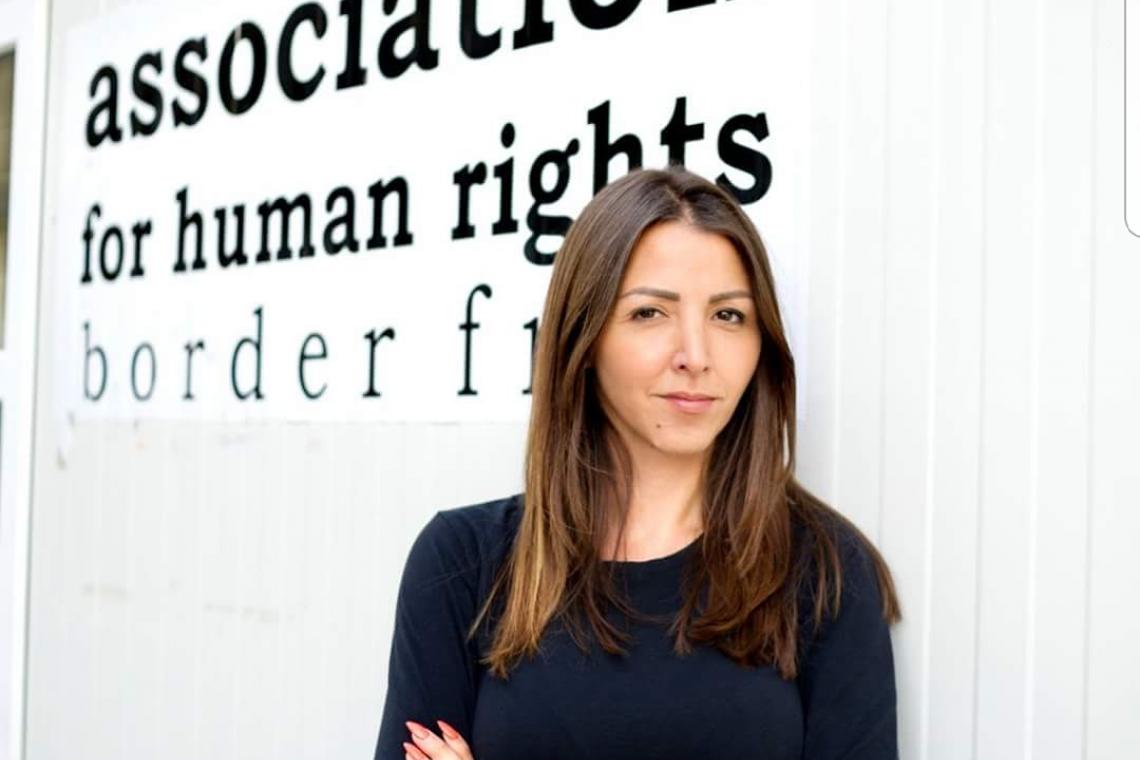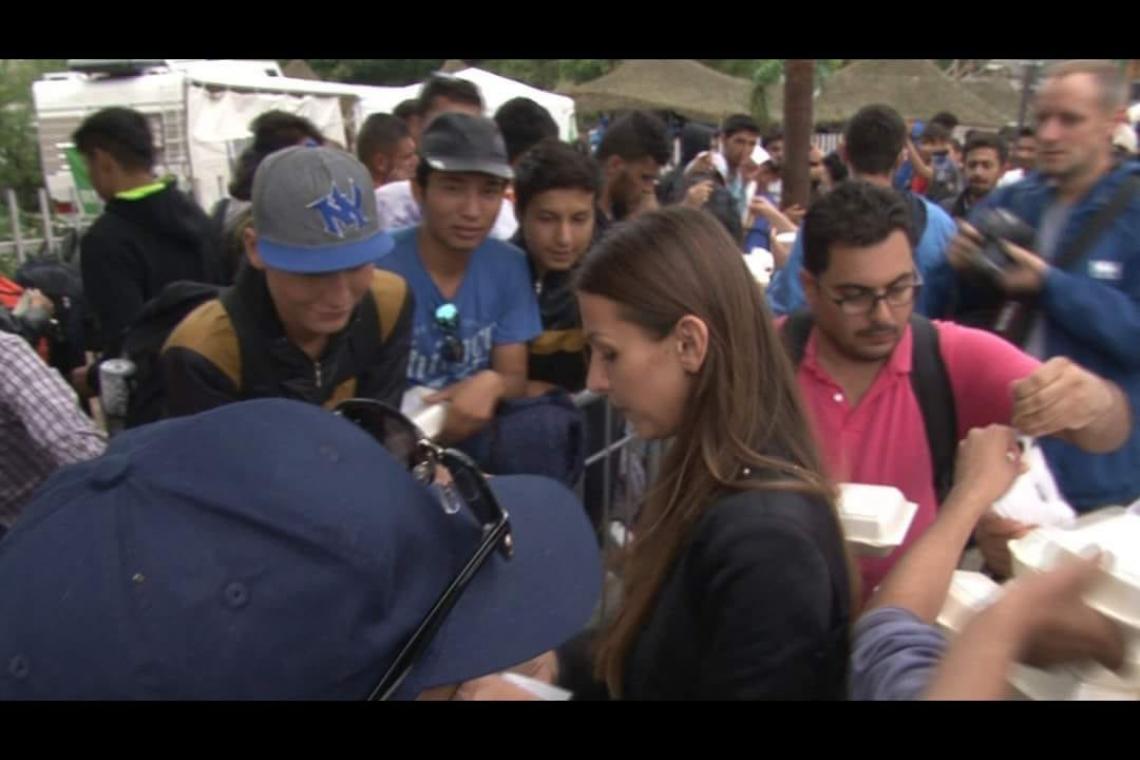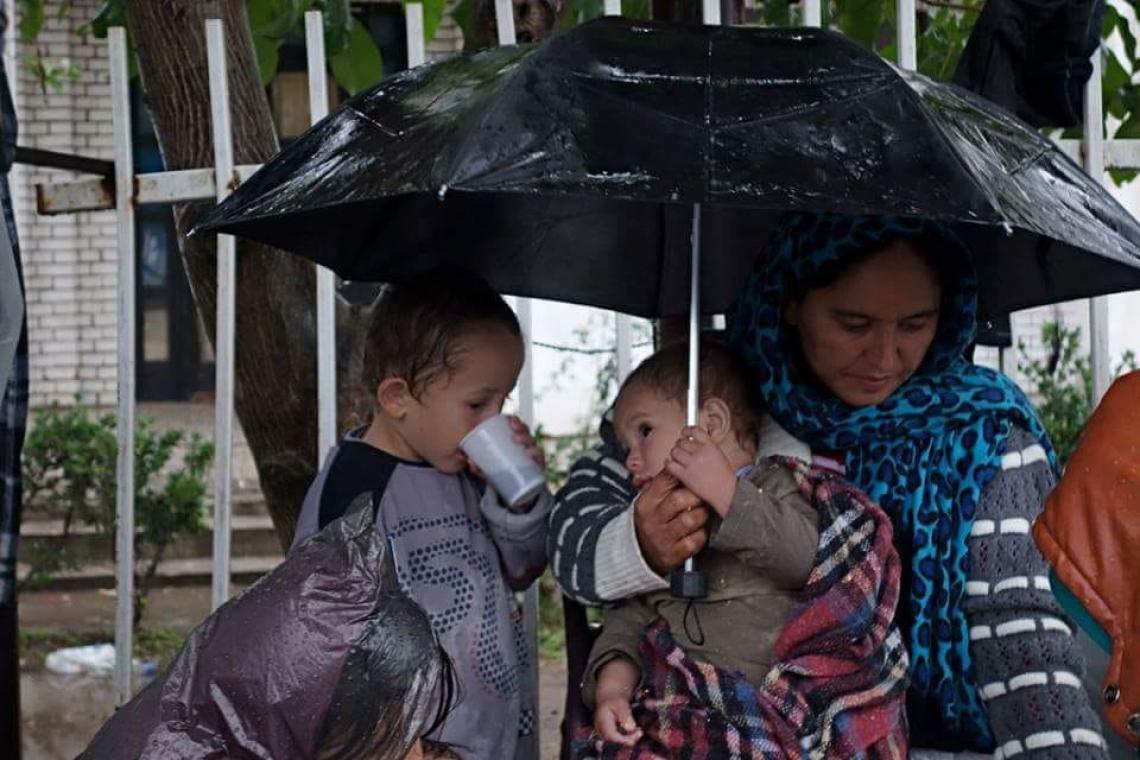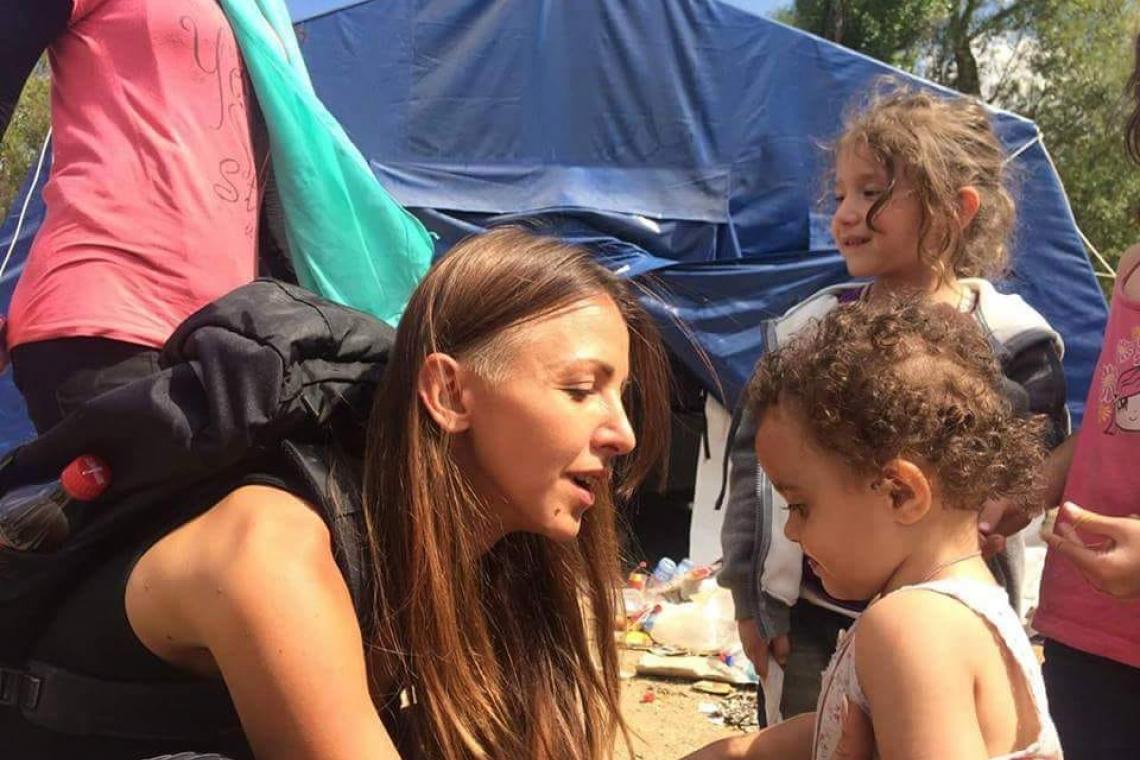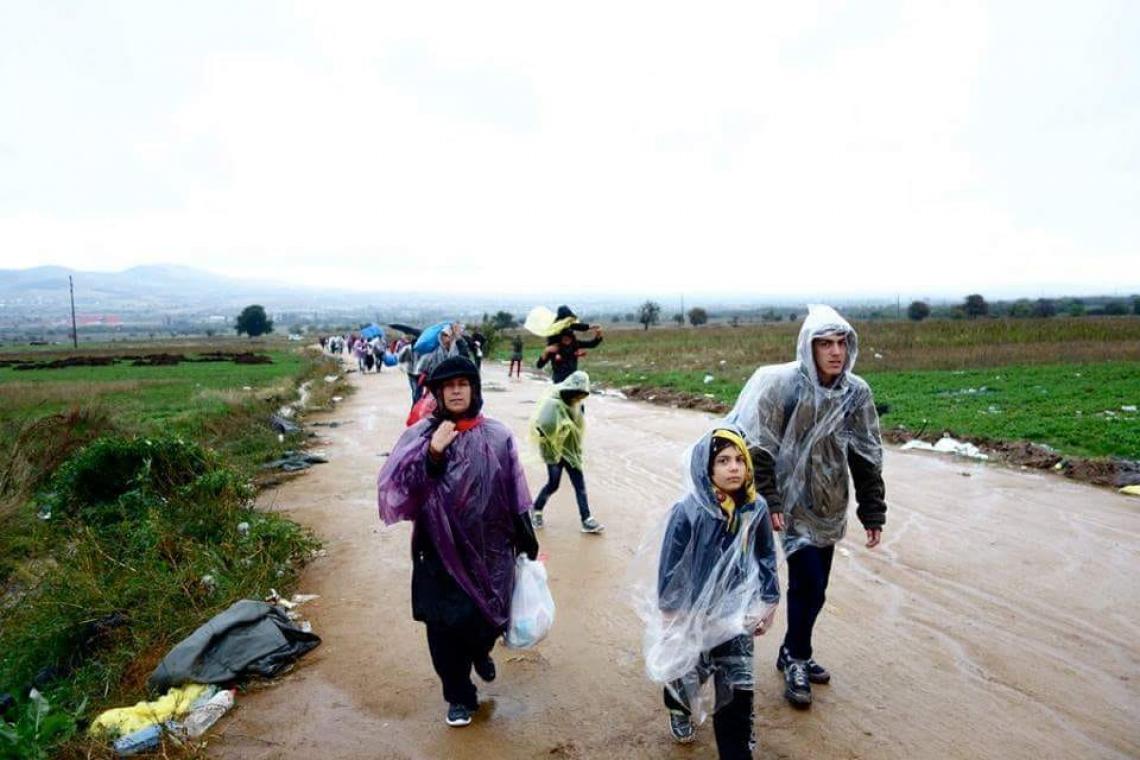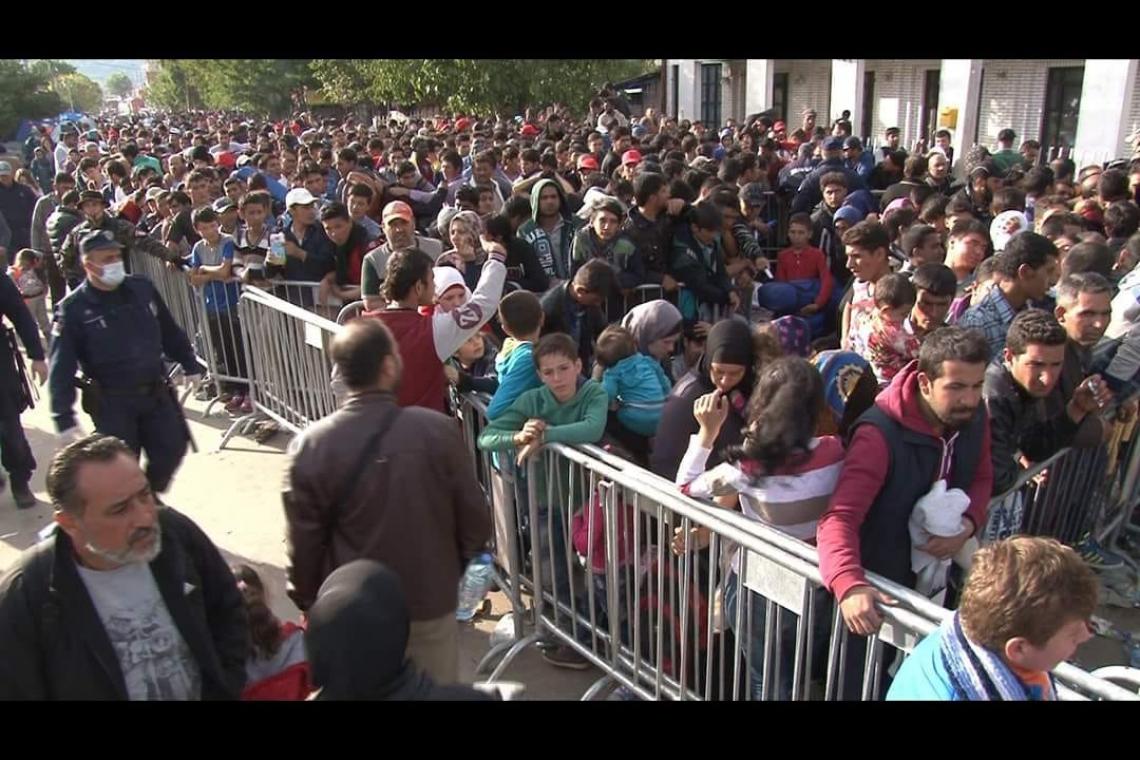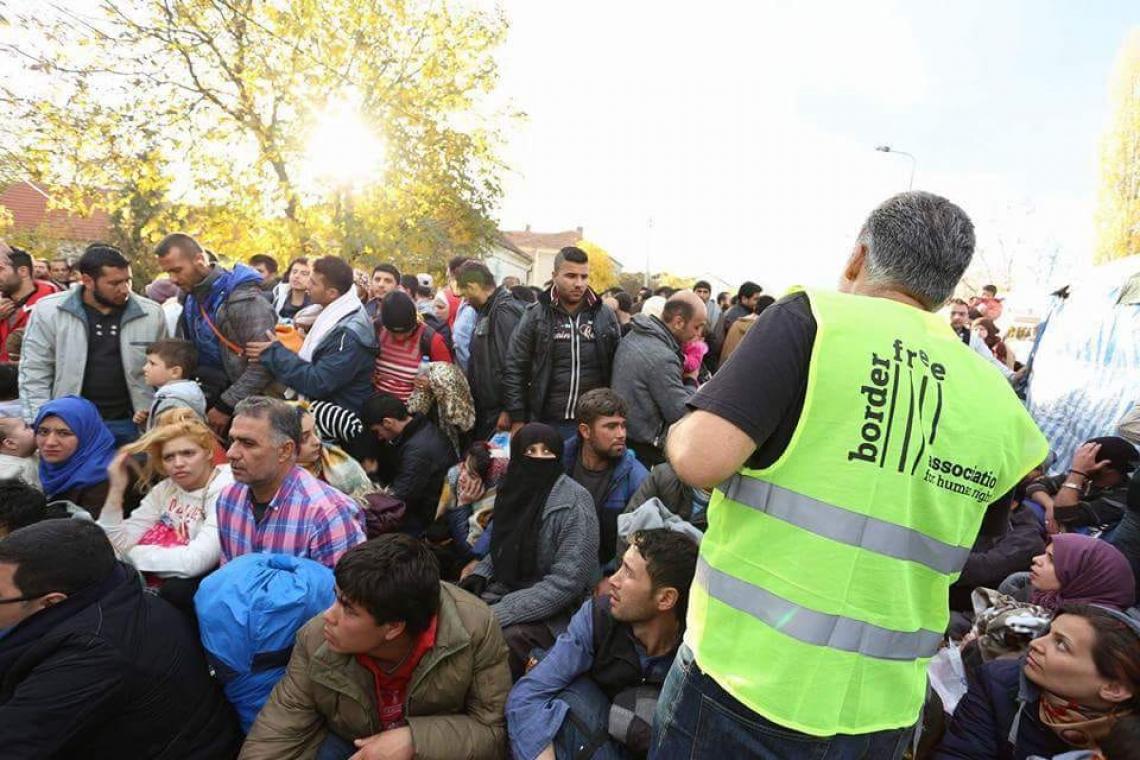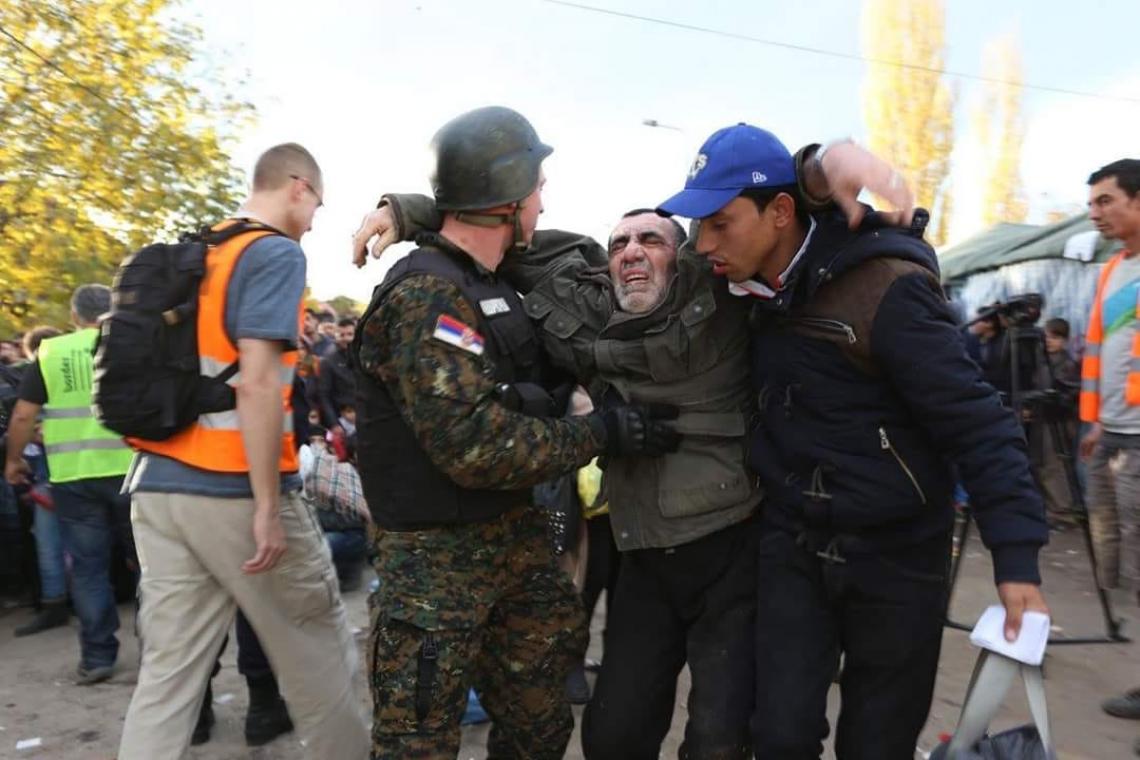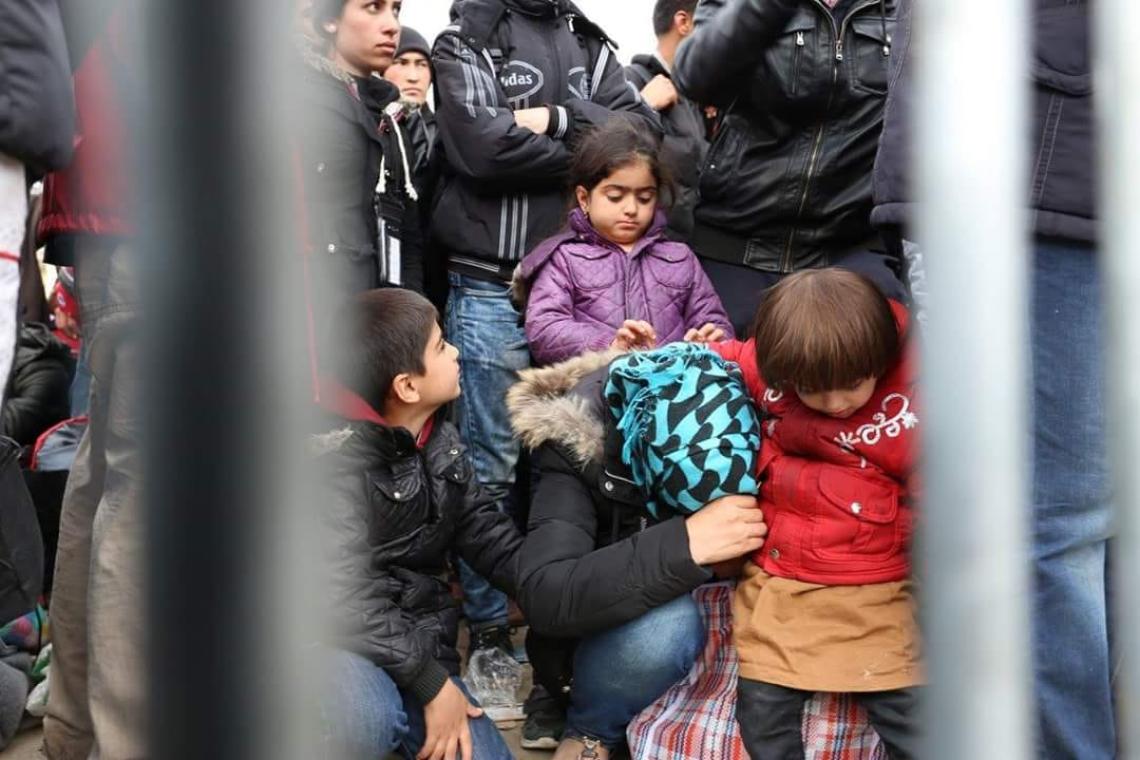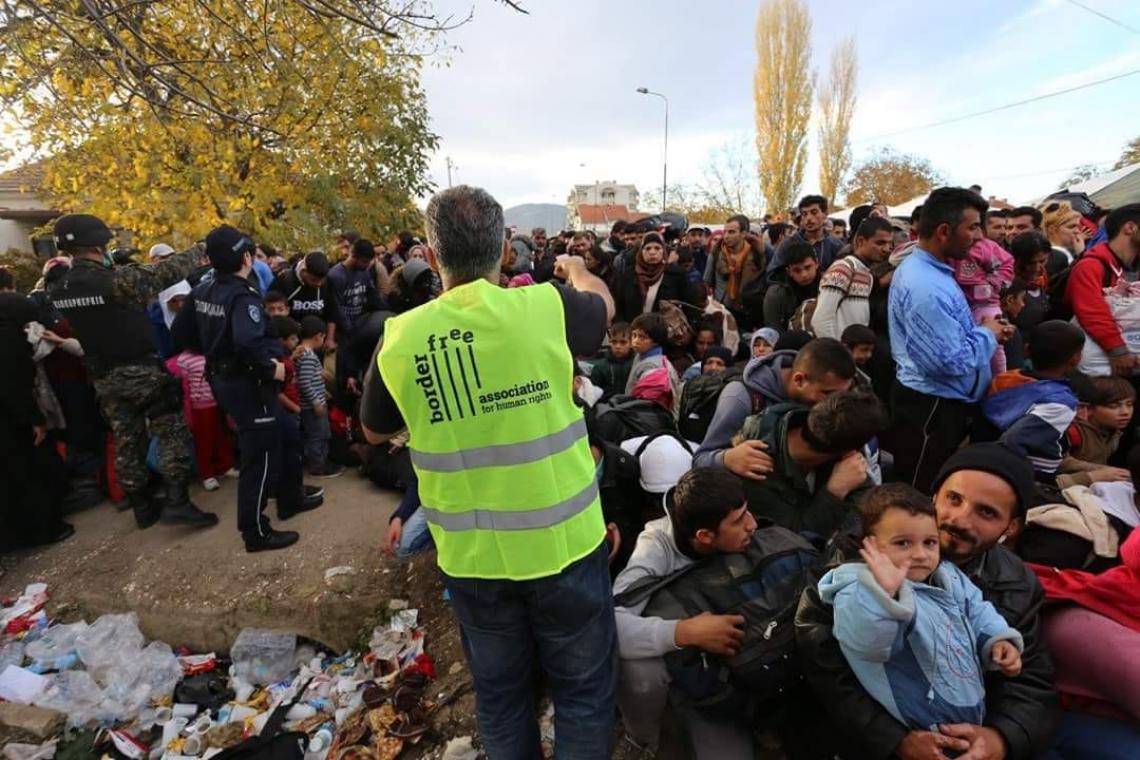INTERVIEW: VANJA CRNOJEVIĆ, HUMANITARIAN WORKER - Finding the strength to help
Having witnessed the war in Bosnia and Herzegovina, she sympathises with the people that have no place to go. She is now trying to do her best to help them and provide them with the basic and necessary help to survive in quite wild exile conditions.
What are the motives and background of your humanitarian work?
My personal motive, given the fact that I started doing this together with several friends, was the interest in others, which has always been quite pronounced in my case, ever since I was a small child. This story thus started in 2015, when I saw on Facebook how the police were beating women and children refugees trying to cross the border between Macedonia and Serbia. I could not believe that something like that was happening in Europe and that people fleeing a war were treated in such a manner. I believe that the failure of the European Union to react is not acceptable, because human rights are enshrined in its legislation. I therefore said to myself that I had to change something. Many people say that an individual cannot change the world, but I say that they can, they only need to dare.
What is the history of your engagement in brief?
History, hm. When I left Maglaj, I felt guilty and I wanted to help. That is what I started from. Since I left when I was 12 years old, when the war started, when I came to Switzerland, I had difficulties to understand that my friends were still affected by the war, dying, becoming disabled, whereas I had the privilege to have everything in a safe country. I have always said that I wanted to help my town as soon as I get the chance to do so. When the floods hit the whole Balkans in 2014, and Maglaj in particular, with water being up to five metres deep, the pictures from my town shocked me and I decided to help. I started a humanitarian action with my friends in a café in Zurich and we wanted to send several packages to Maglaj. However, it stirred a great interest, and instead of several packages, we raised 15 tonnes. People were bringing medicines, detergent, food, clothes. For example, Teufik Delić, an entrepreneur, offered us an articulated truck, we loaded the goods we collected on it and took them to Maglaj. We came in the town, got in touch with the municipality, took the goods to a warehouse, and nobody asked what we brought and what were the quantities. The next morning, the town seemed worse than during the war. One could not walk around without rubber booths, mud and sewage were everywhere, our eyes were burning from the stench. In front of the warehouse, we were told that we could not take the goods we brought and that they would distribute it to people coming to them. That was not logical and it was also not feasible for people from the neighbouring villages to come to get the goods, to get a litre of oil, the way we were explained by the people at the warehouse. I felt betrayed and deceived. Given the fact that we were accompanied by the team of the Swiss TV station SRF, I had an idea. We went to the municipality with cameras and pretended that we would report on corruption and everyone involved in it. We asked them to give us the consent to distribute our goods that we brought to the people. We soon got the ''consent'' to distribute the goods. At the warehouse, they took our papers, they controlled what was ours... I was really disappointed, it was terrible. The people did not seem to care whether babies would have diapers or food tomorrow, whether an old grandma would have oil or water to prepare the lunch... We had two more days and we started packing the goods into packages to distribute them in villages and in the town. Many people joined us to help. I was delighted by the young people who were helping us.
Maglaj failed, the whole system failed, there were even casualties, fatalities. I then left to Switzerland, and the people kept getting in touch with me, asking for help. In this whole chaos, nothing was coordinated. People from Maglaj were writing and asking for help. I thought, I would bring goods and come back, just like the first time. In my naive wish to help, I was promising packages, household appliances, but I was unable to achieve all that. The team broke apart, the wish to organise focused assistance failed. And every morning, there was an ugly comment on Facebook that I was a liar and thief. Even my mom called me to ask why I would need something like that... That was one of the ugliest periods of my life.
The story started in August 2015, while I was living in Zurich, had a normal job, life, apartment... Back then I decided, since I did not trust anyone, I did not trust large organisations, because I have seen that they do not work well, to go and see what could be done and how I might help. Within seven days, I went for the first time to Preševo, before going there, I did not even know where it was, and I found a mass of people coming from Greece and Macedonia. Up to 15000 people would come per day. Back then, the borders were open. I came back shocked. I gathered money in Switzerland, from friends, and would go back to Preševo, where we did basic things at the beginning. We would buy sandwiches and water with volunteers from Preševo, Albanians, young people that showed me where the refugees crossed the border. I came ''accidentally'', without any plan, and then I got ideas. Only once you start doing something, you can get an idea as to what to do next. The idea was to put up a tent, to make a soup, because it got cold during night... Later on, I went back to Switzerland and talked to my boss, I worked at ''Union'' and I started crying and told her I could not continue working, and I quit, and my boss, Carla, even gathered money later on, to help. And then, on September 9, I sat in the kitchen with Dada, who was also a refugee from Bosnia and Herzegovina and who survived hell, and we were talking about what we should do and we had the idea to draw up a statute and register an organisation, because I was afraid that people would start accusing me of taking money, just as it happened in Maglaj. I wanted everything to be transparent. I met some other Swiss people, back then, there was an organisation called ''Zürich hilft mit'', and we started creating an infrastructure under extremely difficult conditions, step by step and with lots of volunteers, mostly young Swiss people. We slept at basements, sometimes we were even hungry, the rain never stopped falling, sometimes we could not take a shower for as long as five days. But everything grew and went in the right direction, and here we are.
The name of your organisation, ''Border-free'' has multiple meanings. What does it mean for you?
We have thought a lot about the name. We chose ''Border-free'' because there are no borders. We do not know them. People come to us and help individually. If someone needs shoes or slippers, we buy them. We do, of course, also have projects where there is a budget only for this purpose, but it is important for us to individually help people. ''Border-free'' starts from one's mind. Where are the limits, what is the norm, what is normal?!? We had a lot of problems because of the name, especially in Greece, both with the police and the military. For me, the name means that we are ''without borders'', both in terms of the territory and thinking outside the box, as well as in terms of helping. When there is a problem, when help is needed, Vanja takes a plane and goes to help.
It is well known that you are not only operating in Switzerland. Where have you been so far?
After we built the infrastructure in Preševo, with a functioning team and coordinators that stayed for a longer time in Preševo, they closed down the borders, it was in February. A large number of refugees were in Greece, a smaller number of them were in Macedonia and Serbia. That very same evening, I sat in the car with my partner and went to Greece. We went to a meadow, where there were masses of people. Some of them were crying, some were laughing, it was winter, fire and tents were everywhere... It was terrible! I decided to stay there, at the camp they already created, but its capacities were for 1500 persons. Today, everyone knows about that camp, Idomeni, where there were 20,000 persons. The idea was to transfer everything we had in Preševo to Idomeni. We set up a large tent and started preparing three meals for 2000 persons per day. The money was there, but it was not sufficient. We needed up to 1500 EUR every day. And these are enormous sums. And we also had a house and costs, because 25 of us were living there. Then the Idomeni camp was closed down, the people were evacuated, we were not registered, but we nevertheless made it to the military camp Petra, where there were only large organisations. They needed a school, so we brought a tent, raised the money and we soon even built two schools. Refugees from Kurdistan, who have experienced the worse, worked with us. It was November, it was snowing, and the camp was at an altitude of 800 m above the sea level, we were in tents, without any heating, people were freezing, so that later on they were transferred to hotels. After this, we were not allowed to enter other camps, although we had a mobile clinic and a volunteer, a doctor from the US.
We went back to Preševo, and in Greece we got the idea to run a mobile dental clinic. A dental clinic was a great success. Dentists who came to see it were amazed how well-equipped it was. We now work with it throughout Serbia. We employed a dentist and we work in Serbia. However, due to the costs, we frequently lack funds. We are actually also helping the local population, refugees from Kosovo and poor population groups, the Roma... So that the clinic is not only for one group, but rather also for the policemen, employees of the commissariat, all people that need help.
When will people avoid wars and humanitarian disasters in your opinion, and what does this depend on?
Countries affected by wars depend on whether those countries that are not affected by wars will continue selling them arms and getting rich at their expense or not. If we stop thinking about the profit, there will be some progress. I think that the younger generations are a bit more conscious and aware. Young people have never protested, and now there are many anti-war demonstrations, and that gives me strength and hope. However, dirty businesses have to stop first. The issue is not the ''islamisation'' and it not terrorism either. The real terrorists are those sitting at tables, wearing ties. It is easy to seduce a people. The war in Syria is a war between Russia and the US. In my eyes, it is World War III. That is my opinion. They all profit from wars, and the people suffer.
How do you see the current situation regarding migrants in Bihać, Bosnia and Herzegovina?
I was in Bosnia and Herzegovina twice. Refugees started going to Belgrade and Loznica to reach Sarajevo. The first time when we came to Sarajevo, everyone called us by our name, and it was as if I were at the camp in Preševo. There was a deal with Hungary, which used to let a certain number of refugees to cross the border, and people were promised this. However, after a year and a half of waiting, the Hungarians closed the borders. So that a new route through Bosnia was created, but they are not interested in staying in Bosnia, they want to go to Europe. We are expecting that refugees will go back from Bosnia to Serbia as soon as the rain and cold weather start. The Croats will soon intensify border controls at the border with Bosnia, because their police will soon be withdrawn from the seaside. I would like to stay and work in Bosnia and Herzegovina, but I cannot put up tents in Sarajevo, and it is also illegal. Obtaining an operating licence in Bosnia and Herzegovina is an extremely long procedure, and I do not know to what extent it is even realistic. We followed a group of people in Selakovac, near Mostar, we presented ourselves, donated water together with the organisation Pomozi.ba, which is already cooking for refugees, and I think that it is better to cooperate with such organisations than to re-invent the wheel. The organisation Syreid from Switzerland, which donates clothes, is also in touch with them through me, and that is a better option. The procedure to get registered for providing assistance lasts for a year, and that forces us to wait. We will probably go there with our dental clinic, we would also like to send midwives... We work, but not as much as we thought we could.
There is currently an ongoing crowdfunding campaign to buy a house for unaccompanied minors
It is a house in Serbia, which we are planning to buy for unaccompanied minors, children aged 7 to 15 years, mostly from Afghanistan. These are usually boys that the Taliban would like to kill or recruit. Their parents are sending them to an uncertain journey, and they are either in camps or on the street now. Under the international law, every child should have special care. The house would include a special team consisting of a sociologist, psychologist, lawyer, and ten boys. That might be the greatest assistance that we can give them in this moment. Everyone should be able to be willing to donate a small sum of money.

